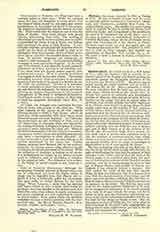

Clericis Laicos, the initial words of a Bull issued February 25, 1296, by Boniface VIII in response to an earnest appeal of the English and French prelates for protection against the intolerable exactions of the civil power (see Pope Boniface VIII). The decree was inserted among the papal decretals and is found in Lib. Sextus, III, tit. 23. After a preamble in which the pope complains that the laity are, and have always been, bitterly hostile to the clergy; that, although they possess no authority over ecclesiastical persons or property, they impose all sorts of heavy burdens on the clergy and seek to reduce them to servitude; that several prelates and other dignitaries of the Church, more fearful of giving offense to their earthly rulers than to the majesty of God, acquiesce in these abuses, without having obtained authority or permission from the Apostolic See; he, therefore, wishing to put an end to these iniquitous proceedings, with the consent of his cardinals and by Apostolic authority, decrees that all prelates or other ecclesiastical superiors who under whatsoever pretext or color shall, without authority from the Holy See, pay to laymen any part of their income or of the revenue of the Church; also all emperors, kings, dukes, counts, etc. who shall exact or receive such payments incur eo ipso the sentence of excommunication from which, except in articulo mortis, no one can absolve them with-out special faculties from the pope; no privileges or dispensations to be of avail against the decree.
The two underlying principles of this Bull, viz. (I) that the clergy should enjoy equally with the laity the right of determining the need and the amount of their subsidies to the Crown, and (2) that the head of the Church ought to be consulted when there was question of diverting the revenues of the Church to secular purposes, were by no means strange or novel in that age of Magnae Chartie; and outside of France and England it was accepted without a murmur. But what excited the wrath of the two chief culprits, Philip the Fair and Edward I, was that from its fiery tone, from the express mention of sovereigns, and the grave ipso facto penalties attached, they felt that behind the decree there stood a new Hildebrand resolved to enforce it to the letter. The Bull has been criticized for the unconventional vehemence of its tone, for its exaggerated indictment of the hostile attitude of the laity of all ages towards the clergy, and for its failure to make clear the distinction between the revenues of the purely ecclesiastical benefices and the lay archical order.
WILLIAM H. W. FANNING

